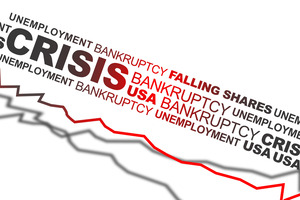Most people who are contemplating filing for bankruptcy, who are in the process of filing for bankruptcy, or who have already filed for bankruptcy are concerned about how bankruptcy will affect their credit report and their ability to obtain credit in the future. It is true that the bankruptcy will remain on your credit report for 10 years. However, there are effective methods that, when used responsibly, can aid in the process of minimizing the effect of bankruptcy on your credit.
At the Tampa Bay Law Offices of Robert M. Geller, P.A., our attorneys are compassionate professionals. We understand the seriousness of filing for bankruptcy and the impact this decision will have on each client’s credit. In addition to providing individualized advice and representation through all phases of the bankruptcy process, our lawyers provide clients with the resources necessary to responsibly, efficiently, and effectively re-establish credit after filing for bankruptcy.
Tips to Reestablish Credit After Bankruptcy
- Review your credit report to ensure debts discharged in bankruptcy are no longer listed. Review it to verify other errors are not listed. It is important to send written notification and a copy of the Bankruptcy Discharge and Schedule of Creditors to the three credit bureaus ( Experian, Equifax, and Transunion). Otherwise, debt obligations from which you have been legally released will incorrectly remain on your credit report.
- Use credit cards responsibly. Many people are uneasy about using credit cards in the wake of filing for bankruptcy. However, one of the most effective methods to re-establish trust is to demonstrate your ability to use credit responsibly. This includes responsible use of either an unsecured credit card or a secured line of credit (which you may be eligible for within one to two years after filing for bankruptcy). It is essential not to max out credit cards and to ensure all statements are paid on time, if not early. Many people find that joining a credit union and remaining an account holder in good standing enables them to become eligible for lines of credit through the credit union sooner than they would otherwise have become eligible through other avenues. Always try to utilize credit options where the creditor reports to the credit bureaus.
- Pay your bills responsibly. Whether paying monthly utility bills, rent, child support payments, newly acquired credit card bills, school loan payments, or even payments made under your Chapter 13 repayment plan, it is critical to always pay your bills on time, and early if possible. Make certain that checks will not bounce, because that too can be reported to the credit bureaus.
View the following for additional information:
- Re-establishing Credit After Bankruptcy
- Can I Obtain Credit After Bankruptcy?
- Bankruptcy Information Center
Contact an Experienced Tampa Bankruptcy Lawyer to Reestablish Credit Afetr Bankruptcy
Attorney Robert M. Geller is a certified specialist in Consumer Bankruptcy Law by the American Board of Certification *. For additional information or to arrange a free initial consultation, contact our Tampa, Florida, law firm. Call us at 813-254-5696 to schedule a free initial consultation.
We are a debt relief agency. We help people file for bankruptcy relief under the Bankruptcy Code.
* Accredited by The Florida Bar to certify lawyers in the specialty area(s) of consumer bankruptcy law.



























![Signs That You May Need to File Bankruptcy [Infographic]](https://djml3wkzi26ea.cloudfront.net/wp-content/uploads/2021/01/signs-chap7-v-chap13.jpg)
![How To File for Bankruptcy [Infographic]](https://djml3wkzi26ea.cloudfront.net/wp-content/uploads/2020/07/bankruptcy-steps-infographic-web.jpg)










